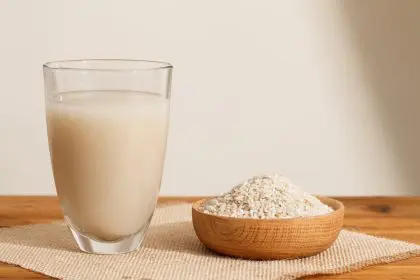In the realm of hair care, trends come and go, but some practices stand the test of time. One such ancient technique that has recently gained popularity, especially among the #HairTok community, is hair oiling. This holistic approach to hair care has been used for centuries to promote strong, healthy hair. But what exactly is hair oiling, and how can it benefit your hair?
Hair oiling involves the application of natural oils to the hair and scalp, a practice deeply rooted in traditional Ayurvedic hair care. According to Nikita Mehta, co-founder and creative director of Fable & Mane, this method not only nourishes the hair but also enhances its texture and overall appearance. By massaging oils into the scalp and strands, individuals can achieve moisture, strength, and conditioning.
Benefits of hair oiling
The benefits of hair oiling are numerous, as highlighted by board-certified dermatologist Dr. Neera Nathan. Here are some key advantages:
- Deeply moisturizes hair strands.
- Protects against breakage and environmental damage.
- Reduces dandruff and flaking.
- Enhances natural shine and radiance.
- May stimulate hair growth.
Potential side effects
While hair oiling is generally safe, there are some considerations to keep in mind. Mehta advises caution for individuals with certain skin conditions, such as flaky dandruff, as oiling may exacerbate these issues. Additionally, improper cleansing before oil application can lead to clogged pores and buildup. Celebrity hairstylist Andrew Fitzsimons emphasizes that the type of oil used should correspond to hair type; using too much or the wrong oil can lead to unwanted effects.
Individuals with fine or naturally oily hair should limit oiling to the scalp only. Those with scalp infections or allergies should also refrain from this practice, as it may worsen their condition.
Choosing the right oils
When it comes to selecting oils for hair care, the options are vast. Here are some expert-recommended oils and their benefits:
- Amla Oil: Known for its conditioning properties, amla oil is rich in vitamin C and antioxidants, strengthening hair follicles.
- Neem Oil: This oil is effective for combating scalp issues like dandruff due to its anti-fungal and antibacterial properties.
- Castor Oil: Ideal for promoting hair growth, castor oil boosts blood circulation to the scalp.
- Argan Oil: Often referred to as “liquid gold,” argan oil softens hair and reduces frizz.
- Coconut Oil: Rich in fatty acids, coconut oil penetrates the hair shaft, reducing protein loss and repairing damage.
- Rosemary Oil: Known for stimulating hair growth and improving scalp circulation.
How often should you oil your hair?
Mehta suggests oiling your hair one to three times a week, depending on your hair type and condition. Those with dry or damaged hair may benefit from more frequent application, while those with oily hair should oil less often. Dr. Nathan recommends starting with once or twice a week and adjusting based on your hair’s response.
Oiling your hair can be a straightforward process. Here’s a simple five-step guide:
- Choose an oil based on your hair type and needs.
- Warm the oil between your palms before applying it to your scalp and hair.
- Gently massage your scalp in circular motions for 5-10 minutes.
- Leave the oil on for at least 30 minutes or overnight for maximum benefits.
- Wash your hair thoroughly with a mild shampoo to remove the oil.
Incorporating hair oiling into your hair care routine can be a game-changer for achieving strong, shiny, and healthy hair. With its myriad benefits and minimal downsides, it’s a practice worth considering. As Dr. Nathan puts it, “It’s a no-brainer in my book for strong, shiny, and healthy hair.” So, if you’re looking to elevate your hair care game, give hair oiling a try!
















